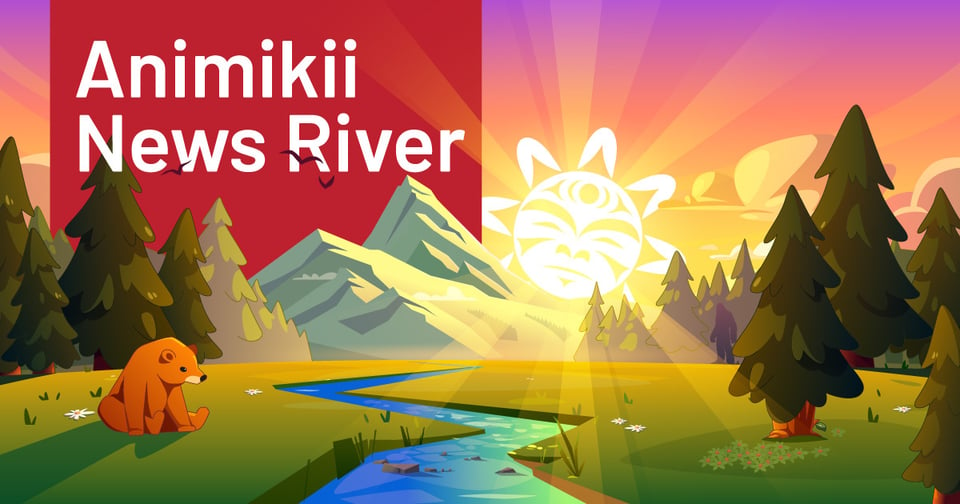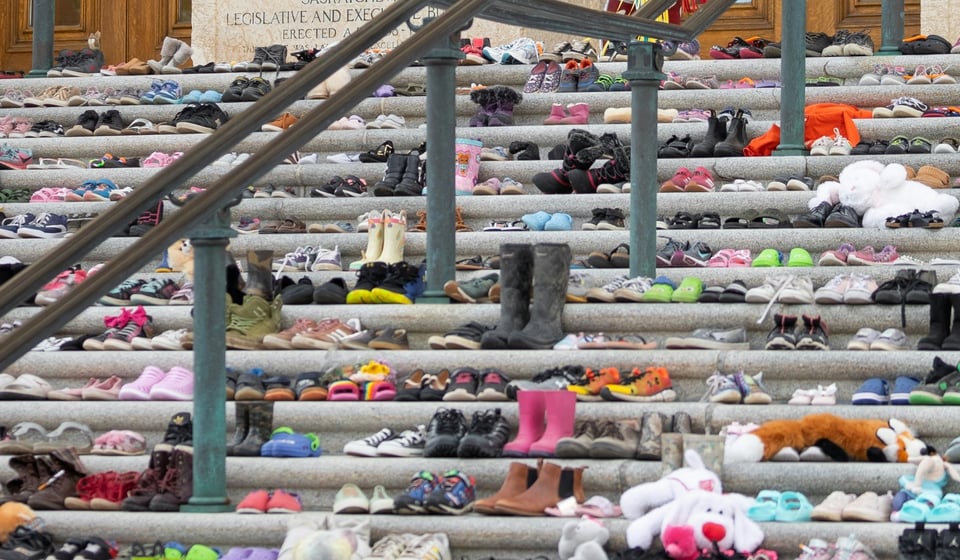Supports for Residential School Survivors in Ontario
Navigating heatwaves, decolonizing science, and ocean geography through an Indigenous lens.

We hope you’re keeping safe and comfortable in the midst of the heat warnings and air quality advisories happening in various areas.
Social support helps us cope with the stress of these challenging events - check in on your neighbours and vulnerable community members for a chat and see if there is anything they might need assistance with.
As always, we’re thankful you’re here.
This week’s stories include:
Geo school designed to give Mi’kmaq youth firsthand experience of life onboard a working ship while teaching them geography through an Indigenous lens.
Eight steps that academic institutions can take to stop marginalizing Indigenous people.
A Manitoba-specific database documents over 250 missing and murdered Indigenous men and boys.

Ontario to spend $7.7M to support residential school survivors
The big picture: The Ontario government will spend $7.7 million on mental health and wellness supports for survivors of the residential school system and their families. The Indian Residential School Community Engagement Fund is specifically tailored towards those impacted by the ongoing residential school burial investigations, the province said Monday in a news release.
Why it matters: The fund, which is available to both communities and organizations, will provide up to $250,000 for things such as public education and awareness, survivor engagement, gatherings, commemoration initiatives and research activities.
What they’re saying: "This investment is in direct response to what communities have told us they need — flexible, community-driven resources that address the impacts of this difficult work," Indigenous Affairs Minister Greg Rickford said in the release.
Learn more: Applications for funding are open through the Ontario government’s Transfer Payment Ontario website until September 8, 2025.
Curated Articles:
Decolonize scientific institutions, don’t just diversify them.
Indigenous scholars set out eight steps to stop marginalization in academia and to enable a shared Indigenous agenda in science. Diversity, equity and inclusion initiatives intend to support Black, Indigenous and other marginalized scholars — but the pace of change has remained slow. Too often, Indigenous people continue to be objects of research; they must be allowed to become research leaders. For this to happen, extractive research that is taken from Indigenous people without their meaningful involvement, benefit or consent must stop. Indigenous communities must be in charge of whether or not they participate in research, and what happens with any data collected. This is how universities and scientific institutions should uphold key principles of Indigenous self-determination, and ensure data sovereignty in education and research. Here, we outline eight steps that academic institutions can take to stop marginalizing Indigenous people.
Manitoba database tracks missing and murdered Indigenous men and boys
Alaya McIvor, advocate for missing and murdered Indigenous women girls and now men and boys, speaks with guest host Marjorie Dowhos about creating a Manitoba-specific database documenting over 250 missing and murdered Indigenous men and boys. She talks about the personal inspiration behind the project, the challenges of building the list, and the hope it brings for families and communities.
‘I end up buying less food’: Indigenous people should not have to go hungry to use the internet
Access to the internet is not a luxury. It’s an essential part of life. It shapes how people study, find and do work, access healthcare, stay connected with community and interact with government services. For Indigenous peoples, the internet also plays a vital role in maintaining cultural connection, sharing knowledge, and keeping links to kin and Country strong. Despite it being essential, a new study has found many Indigenous people are denied internet access because of poor infrastructure, high costs, lack of culturally appropriate training and inadequate services that don’t meet community and individual needs. This digital exclusion compounds existing disadvantage and makes daily living, such as paying bills, working, or getting an education, prohibitively difficult.
The dark history of forced starvation as a weapon of war against Indigenous peoples
There is increasing evidence that “widespread starvation, malnutrition and disease” are driving a rise in hunger-related deaths“ in Gaza, a group of United Nations and aid organizations have repeatedly warned. Israel is not the only government in history to cut off access to food and water as a tool of war. As an Indigenous scholar who studies Indigenous history, I know that countries – including the United States and Canada – have used starvation to conquer Indigenous peoples and acquire their land. As a descendant of ancestors who endured forced starvation by the U.S. government, I also know of its enduring consequences.
On a bright spring day in southern Newfoundland, a crowd has gathered at the Ta’n Etl-Mawita’mk Community Center on Miawpukek First Nation as the community prepares to send a group of their youth off on an exciting adventure. The eight youth, ranging in age from 14-19, will spend the next five days aboard the former Canadian Coast Guard icebreaker Polar Prince as it sails from Miawpukek First Nation through the South Coast Fjords of Newfoundland, learning the basics of oceanography and exploring possible career paths in the marine industry. The Indigenous Co-created Geo School… is designed to give Mi’kmaq youth firsthand experience of life onboard a working ship while teaching them geography through an Indigenous lens. In the words of James Kendell, “Being able to actually see the animals and coral with the underwater camera makes me feel like I need to do what I can to help protect it.”

Add a comment: